Jonathan Dodd’s latest column. Guest opinion articles do not necessarily reflect the views of the publication. Ed
I have always carried a penknife. My father is responsible for that. All the way through my childhood he could be eternally relied on to have a clean handkerchief in one pocket of his shorts and a penknife in the other. I should mention that he was an inveterate short-wearer, except when he was at work. He had a job at a certain high street bank in Hove, ever since the stock market crash of 1928, when his aunt rescued him from a job in a petrol company and wangled him something she thought would be safer.
I never found out what he thought about that, because he never talked about anything from the past. He was one of those men of that generation, who never talked about the War, as it was known, or anything else. Apparently getting a job in a bank in those days was a thing achieved with great difficulty, and required letters of introduction from the local mayor, at least, and several other dignitaries.
An actual wife and an actual family
His aunt was able to do this for him because she was married to a stockbroker, and they lived in Haywards Heath. She used to be his secretary, and the story was that they ran away to Gretna Green and were married, but nobody actually believed that, at least in private. After he died and she went gaga (dementia sounds so much less fun, not that there’s much fun to be had), my father became responsible for looking after her money, and he discovered a monthly allowance stretching back decades to an actual wife and an actual family.
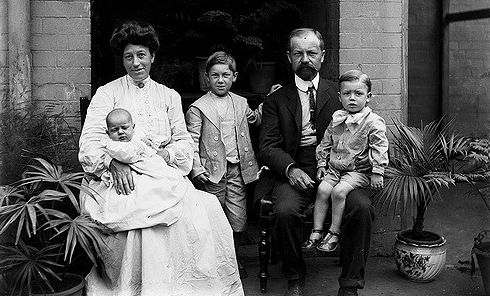
People didn’t get divorced in those days, it seems. He was Catholic, which was bound to complicate matters. I was not privy to the original events, and neither was my father. As for my aunt, she was a formidable woman, as anyone would be who became the secretary of a stockbroker, and she would have soon scotched any undue rumours of that type. A stockbroker in those days was an object of awe, and involved rumours of great wealth and influence. Nobody had any idea of what a stockbroker actually did, even, but the Haywards Heath address was the clincher.
His Manager kept shouting at him because he wasn’t wearing his hat
Anyway, I never found out whether my father actually thought he had been rescued by the bank, or whether a job in petroleum would have provided him with a life of excitement and fulfilment. That’s another thing he never talked about. But I do remember him talking about being a bit of a rebel. He used to have to wear a hat at all times in public, and he kept losing it, or trying to lose it, and he travelled on the same morning train as his Manager, who kept shouting at him because he wasn’t wearing his hat.
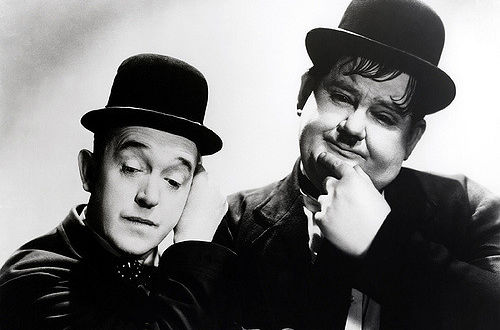
Those were the days, apparently. He met my mother, and they got engaged, but they had to wait to get married until he was 28, because the bank told him those were their rules. Imagine an employer trying that one on nowadays. So they had a very long engagement, they bought a brand-new house that they couldn’t move into for six months until the plaster had dried, and they had all their furniture bought and stored. That was in 1938.
Small baby-making factories
My mother had to stop work as soon as she was married, because wives didn’t work then. They were supposed to support their husbands and have a meal composed of meat and at least two veg on the table, and his slippers and newspaper by the fire, when he came home from work. And they were supposed to set up small baby-making factories. My mother was a model new wife, and my brother was born just before The Germans broke up the party, my father disappeared for six years, and the bank promised him his job back when he was demobbed.
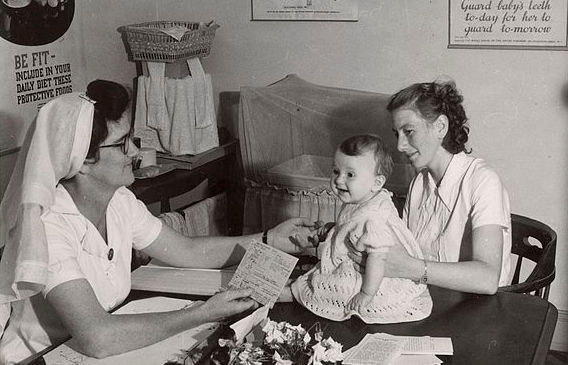
I know that he didn’t enjoy his job in the bank, although it wasn’t too taxing. He had to wear a suit, which he hated, and he had to be nice to customers. But he was never a career banker. He walked to work, having put on the suit at the last moment, and tore it off in favour of shorts and the contemporary equivalent of a polo-shirt as soon as he came home, and then he would most likely be off down on the beach, to fish, or to beach-comb, or to shrimp.
I didn’t like hitting them on the head with a stone
My brothers, both older than me, were keen fisherpersons, like him. They spent a long time encouraging me, but I got bored easily, because I’d rather be reading. I was given a small rod, and I even caught the odd small fish, but I didn’t like hitting them on the head with a stone. I was a more enthusiastic shrimper though. We had a pebble beach, that gave way to wet hard sand at low tide, and my father made us all shrimping nets, which were basically a T-shaped affair with a piece of bamboo bent around in a semi-circle and a cone-shaped net attached to the bar of the T and around the bamboo.
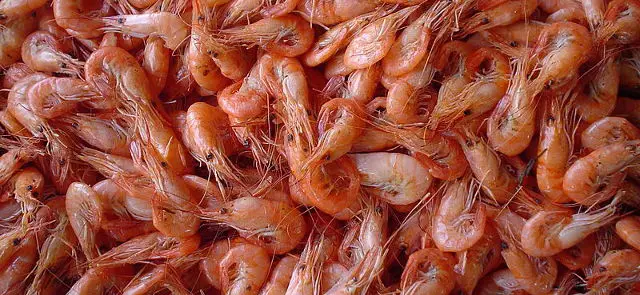
We would walk along in the shallows at low tide, pushing these ahead of us like brooms, and the shrimp would be swept in. Afterwards, we would fill a bucket with them, and my mother would pour them into a huge saucepan of boiling water. They would turn from semi-transparent grey to delicate pink very quickly, and I was assured that it was very quick, and didn’t hurt them at all. Afterwards, we would gorge on them, twisting the heads and tails off and squeezing the flesh out from the hard hinged shells and the hundreds of legs.
He didn’t know when it was hurting, and therefore when to stop, but I did
If ever I hurt myself, my father would produce his handkerchief from his pocket, and wipe me with its comfort and relief. And if ever something needed mending, or there was a splinter or piece of glass to be removed from some small portion of flesh, out would come the penknife. If that didn’t work, he would go out to his garage, where he had a huge variety of tools. I used to love watching him adjusting watches with his penknife, prizing off the back and delicately adjusting tiny screws.
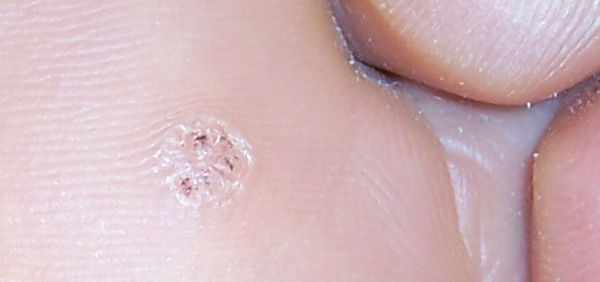
I wasn’t so keen when I was discovered to have a verruca on my foot, or a wart on my hand. That same penknife would be used to delicately pick out the flesh of these, bit by bit. He would sit in an armchair, and I would sit on the floor, with the offending foot or hand in his lap, under the light of the standard lamp. He would use the knife, I would whimper and try not to wriggle, and he would tell me to sit still, and this would go on for hours. I always wanted to watch, and I always wanted to be the one doing it, because he didn’t know when it was hurting, and therefore when to stop, but I did. Obviously.
See what you could do, in a manly and competent-seeming way
So I grew up with definite ideas of what sort of thing a man should be equipped with. I have no idea whether his ministrations to the warts had any effect, because they seemed to have a mind of their own, but it was necessary to have a go, and to see what you could do, in a manly and competent-seeming way. But my experience of the handkerchief and the penknife, once I was able to carry them, was completely different. After a lot of begging and whining, and solemn discussions with my mother, I was given an old, small, very blunt penknife. It was so blunt that it would have had trouble slicing soft butter, so I was quite safe, but it made me very proud nonetheless. I didn’t dare bring it out in public, because I would immediately be asked to cut something with it, and that would have been social disaster.

The handkerchief was terrible. I was always given one to take to school by my mother, but the trouble was that my olfactory vessels have always been vast, and they generate a lot of fluid. So after blowing my nose, I could never fold it well enough to contain its sogginess when I put it back in my pocket. This was made worse by the next time I needed to blow. I had to take the damp viscous thing out of my pocket and try to find a dry patch, and of course there never was. There was never anywhere I could put it to dry out, and it would sit malevolently in my pocket, squelching balefully.
My 2.5-centimetre blade was classified as an offensive weapon
I can’t remember how I managed until the invention of paper handkerchiefs. It’s like nappies. First baby, it’s a new world, be natural and green, use towelling nappies. Next baby, to hell with that, straight into disposables, no messing. So the cotton handkerchiefs had to go. But I’ve always carried a penknife. It has been a constant companion. I use it every day, for common tasks and unexpected jobs. It can be a problem on airplanes, of course, so I have to do without it on-board, but it’s the first thing I retrieve from my suitcase when we arrive.
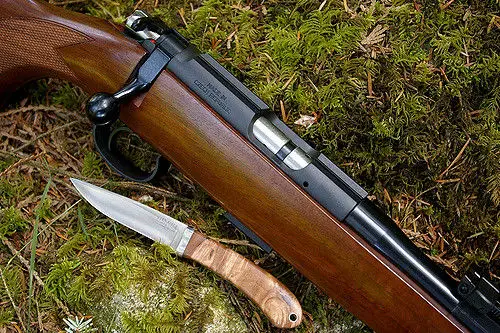
We had a terrible time in New York a few years ago, because I was constantly being x-rayed and searched and asked if I had any offensive weapons. Surprisingly, I discovered, in the land of the freely-available semi-automatic weapon, that my 2.5-centimetre blade was classified as an offensive weapon, and I had to hand it over many times before entering public buildings. Once I had a tense standoff between myself and a small scrawny man with a large gun strapped to his belt, because he insisted on me handing my dangerous weapon over, and then refused to allow me to collect it afterwards.
They’ve been lost, I suspect, by non-penknife-users
I spent a tense few days afterwards being aware of the absence of my trusty penknife in my pocket. People think I’m weird about it, but there would be several things I couldn’t do every day if I didn’t have it. That’s the thing about tools, they help you to do things. At work I use it to open parcels for people, tighten things that have become loose, and open the hand-towel dispensers in the kitchen and toilets. I’m sure there were once tools to do this, but they’ve been lost, I suspect, by non-penknife-users. Of which the world is full.
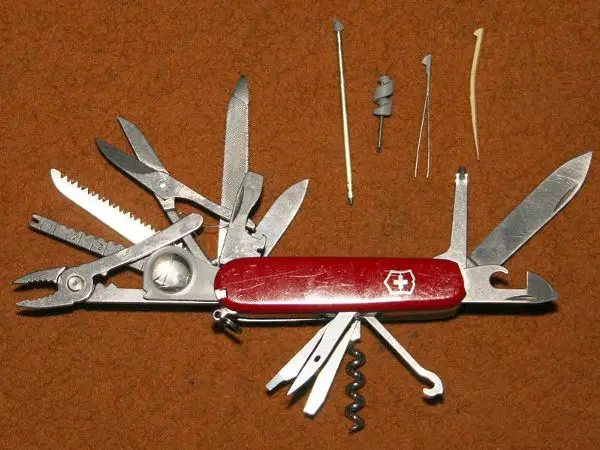
Unlike my father, in whose time there were only simple penknives, unless they had a spike for removing stones from the hooves of horses, nowadays there are lots of clever implements that can do a variety of jobs. I started out using those attractive red Swiss ones, but they turned out to be a lot less durable than they should be (flimsy rivets), and the scissors were useless, with a silly spring thing that kept getting lost or broken. But they did store a very handy toothpick. After giving up on them I found a wonderful little thing by an American company with a very manly name, made of surgical stainless steel, 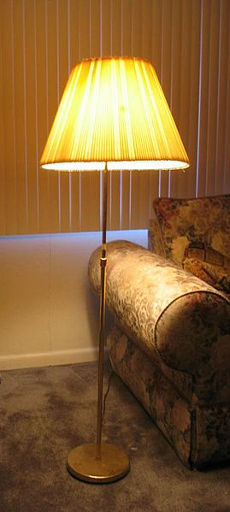 which is small enough and light enough to nestle among the change in my pocket. I even found a place in it to store one of those useful Swiss toothpicks.
which is small enough and light enough to nestle among the change in my pocket. I even found a place in it to store one of those useful Swiss toothpicks.
Ready to remove stones from the hooves of livestock
So I venture out into the world every day ready to remove stones from the hooves of livestock, pick food from between my teeth, provide handtowels for my colleagues, open bottles and cans, and I can even cut out warts, if you ask me.
I’ve just realised that I still have that standard lamp.
If you have been, my penknife and I thank you for reading this.
Image: maxpixel under CC BY 2.0
Image: powerhouse_museum under CC BY 2.0
Image: tom-margie under CC BY 2.0
Image: National Library of Australia under CC BY 2.0
Image: Jewgienij Bal under CC BY 2.0
Image: Simon Nuttall under CC BY 2.0
Image: pixabay under CC BY 2.0
Image: nechakoriver under CC BY 2.0
Image: Look Sharp! under CC BY 2.0
Image: Jiang under CC BY 2.0




